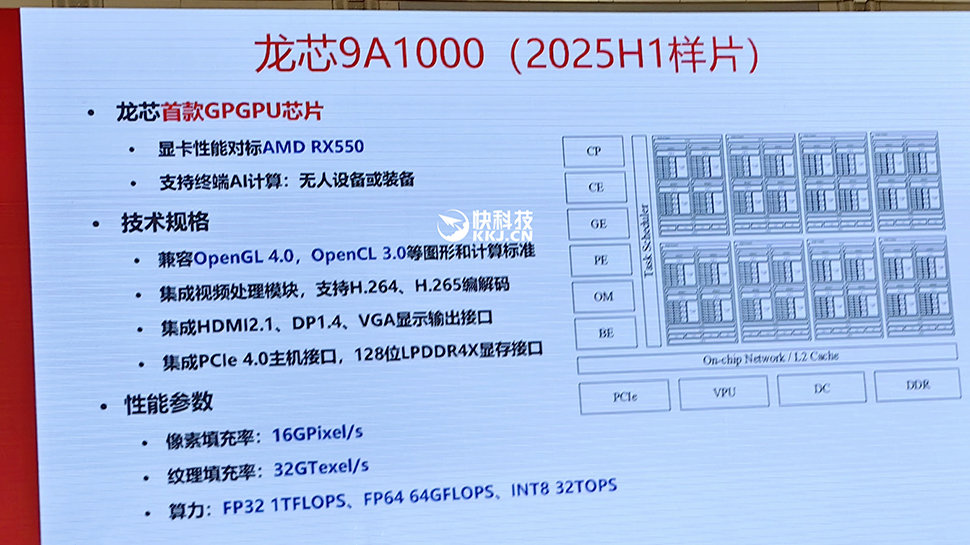
Known in China as the grandfather of domestic CPUs, Loongson develops processors and chips in a bid to reduce the country's reliance on foreign technology, particularly from companies such as Intel and AMD.
Although probably best-known for its Loongson series of processors (originally based on MIPS architecture), the company is branching out and has unveiled its first self-developed GPGPU (General-Purpose GPU), the Loongson 9A1000.
Announced at the recent Loongson Industrial Ecosystem Conference, and reported by Fast Technology, the 9A1000 aims to deliver competitive performance for AI computing in edge devices and unmanned systems. Tech giants like Nvidia can breathe easy for now, however, as the Loongson 9A1000’s performance is projected to match the AMD RX 550, a graphics card best known for its efficient 50W power consumption and PCIe 3.0 interface, which originally launched in 2017.
Arriving next year
The new Loongson chip isn’t quite as dated as AMD’s card. It supports PCIe 4.0 and integrates LPDDR4X memory with a 128-bit interface. Though detailed specifications, such as core count, frequency, and power consumption, have yet to be disclosed, an architecture diagram shown at the conference reveals eight compute arrays, an on-chip network, and L2 cache.
In terms of performance, the 9A1000 supports OpenGL 4.0, OpenCL 3.0, and other standard APIs. It also includes video processing modules capable of decoding H.264 and H.265 and offers HDMI 2.1, DisplayPort 1.4, and, in another nod to the past, VGA output. The chip boasts a pixel fill rate of 16GPixel/s, a texture fill rate of 32GTexel/s, and computing power of 1TFlops for FP32, 64GFlops for FP64, and 32TFlops for INT8 operations.
The Loongson 9A1000 is expected to complete its tape-out process and begin sampling in the first half of 2025.
Loongson also announced that it is developing the next-generation GPGPU chip, the Loongson 9A2000, which promises an 8-10x performance boost compared to the 9A1000. The company expects the new chip to deliver performance on par with NVIDIA’s RTX 2080, which launched in 2018.







